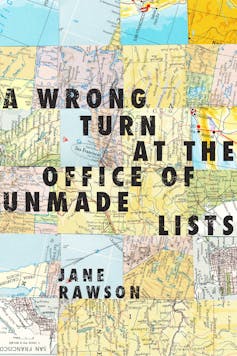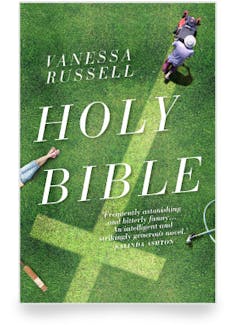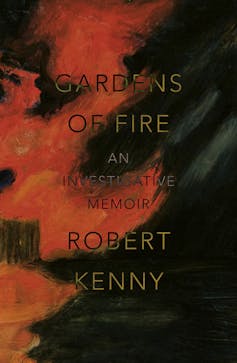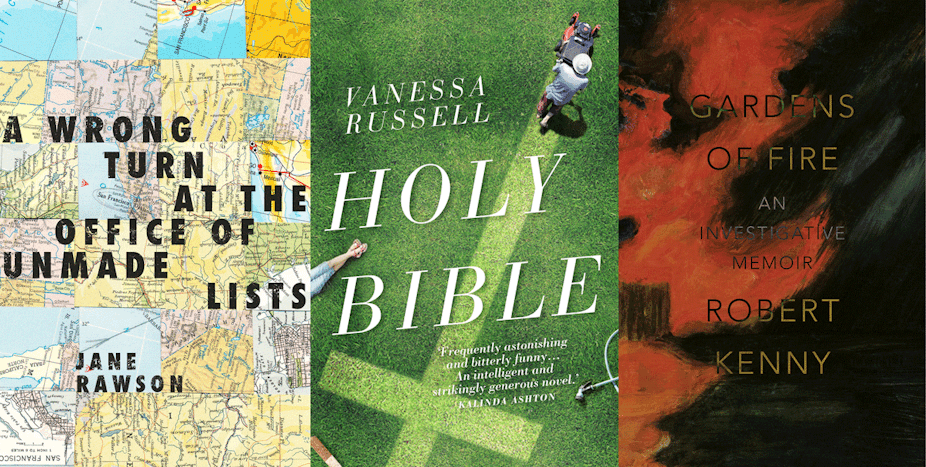It can take decades for critics to catch up with the great reads of the century.
Even a cursory glance at the history of literary awards will confirm that cosy, comfortable, safe, or merely popular books get selected with embarrassing frequency.
How on earth did William Faulkner get passed over for the 1937 Pulitzer Prize for Margaret Mitchell, author of Gone with the Wind? Indeed, Faulkner was rejected for the Pulitzer with comic regularity. The Sound and the Fury was overlooked for Oliver La Farge’s Laughing Boy, As I Lay Dying was pushed aside for Margaret Ayer Barnes’s Years of Grace, and Light in August was discarded for T.S. Stribling’s The Store.
Faulkner eventually won the Pulitzer twice – ironically, for his worst books, not his best. Other writers such as Vladimir Nabokov never had the pleasure. Lolita was said to be too scandalous to be short listed for anything. When Pale Fire was eventually put forward for the US National Book Award it lost to Morte D'Urban, a clerical comedy by J.F. Powers.
The Most Underrated Book of the Year Award (MUBA), sponsored by the Small Press Network, promises to do more in the way of justice to Australia’s overlooked books.
It is a prize that seems set to reward off-beat, experimental and innovative books – books that may not have been reviewed as well as they might, that may not have found the audiences they deserve, that may have been deemed too small or too uncertain to have been submitted for major awards (given the cost of entering prizes such as the NSW Premiers Literary Awards – with an entry fee of A$100 per book – could keep a starving writer and their family in groceries for a week).
It is difficult for small publishers and their authors to compete in an increasingly crowded literary market. Celebrated authors stand out because of their names. Authors published with major imprints stand out because of their publisher’s market position and distribution base.
Prizes such as MUBA shine the spotlight on small imprint books for a little longer in a world in which the shelf life for most books is shorter than the shelf life of breakfast cereal.
The 2014 shortlist comprises three gem-like books.
Jane Rawson, A Wrong Turn at the Office of Unmade Lists (Transit Lounge, 2013)
This is a wild, off-beat head-trip of a book, laced with more than a little melancholy and a whole lot of hope. It is set in a post-apocalyptic Melbourne somewhere in the future, a familiar cityscape transformed into a shanty-town evoked with often caustic, pyrotechnic writing.
The book centres on Caddy, who is in mourning for the day on which “her husband and cat got vaporised”. On that day, “Caddy didn’t just get sad, she got poor”.

Living on coins and memories, Caddy teams up with Ray, who happens upon some worn but magical maps. Jumping through the creases, the characters are transported to strange places such as Shadow Storage and Retrieval or the Office of Unmade Lists of the book’s title.
This is an extraordinary place where all the lists that haven’t yet been made are kept – lists of the “speed of everything that has ever existed” and lists of “Smells Now Extinct”, such as the “smell of a triceratops egg” or “the small of a trilobite which has been feeding underwater and is now half exposed by a receding tide”.
Reading this book is a lot like getting lost in John Barth’s funhouse. Or a novel by Thomas Pynchon. It’s Kafkaesque, but without the darkness and the violence. The story never loses its poignancy. In this topsy-turvy world utopia turns out to be normality – more precisely, utopia is San Francisco 1997, a place where Caddy could
get a real job, in a real building, go there every morning around the same time and sit at a desk until later in the day, then go home to an apartment with a bed and a fridge.
This is a book that throws the windows of the world open. It leaves lots of spaces for the reader to climb through, and think, and wonder.
Vanessa Russell, Holy Bible (Sleepers, 2013)
This novel takes a deep dive into the subterranean conflicts of a suburban religious sect, anxiously awaiting the return of Jesus in the outer suburbs of Ballarat. It is a terrific read, so I can’t help suspecting that it may have been overlooked because it deals with the uncomfortable subject of religious mania, but always with soft irony and a deeply human empathy that is comic but also affective.
This is not a novel about the perils of sexually-sinister albeit charismatic preachers and drug-crazed orgies, but raspberry-cordial flavoured trifle and cream buns at dawn. The sect is “more Victorian” says Amy, a character known as the “Outsider” because she elected to join the Brethren in what was tantamount to an act of defiance against her liberated, atheistic academic mum.

The story also focuses on the plight of the wonderfully named Tranquillity Bloom, who, at age 18, is well past her “baptise-by date”, but steadfastly refuses to be dumped in the baptismal bath, holding onto her life’s ambition to become a nurse. Tranquillity fantasises about dressing up in a uniform, “pattering along linoleum buffed floors, answering buzzers, soothing brows”.
Tranquillity just wants to help people, but that’s an ambition the Brethren deem too “worldly”.
Holy Bible is also a story of terrible damage, of nonconforming children cast out of home, cut off from friends. The climax concerns a near fatal bashing, the result of a “disfellowship” ceremony. But the Manichean lines of religious belief are often deliberately blurred.
Amy’s “deprogramming sessions” with Dr Chalmers are perfectly hilarious. He is, as his name suggests, a lot less than charming, a hypocrite rather than a hero, for whom Amy (sent for religious deprogramming by her mum) represents a book project, his “writing had the timbre of a nice research grant”.
This book is about a lot more than religion. It’s about just how deeply we deceive ourselves, and how we can choose not to.
Robert Kenny, Gardens of Fire (UWA Press, 2013)
Gardens of Fire is yet another gem. It’s subtitled an “investigative memoir” for the way it weaves together a deeply personal account of the Black Saturday fires of February 2009, with a mosaic of cultural and historical reflections on fire.

“We are not used to fighting for our lives,” writes Kenny. We see “natural disasters as aberrations”. Yet Australia has a significant history of fire, which Kenny recounts. There is Black Saturday, Ash Wednesday, and Red Tuesday. There are many other conflagrations that do not have names.
There is a power in the way Kenny combines narratives from the mythology and science of fire. But it is ultimately the personal narrative that makes this book. It is the astonishingly calm, often witty and self-critical account of the author’s experience of the fire as it swept through his property, burning his house, his cat, his belongings and many of his memories to the ground.
The personal narrative takes on added resonance as the author digresses from the legend of Prometheus to the history of domestic architecture in Australia, to the regulations that govern building in fire prone areas.
All this light and timber and circulating air means the conventional Australian home is a perfect pyre.
This is a worthy, lyrical and moving book. But I do have a question for the judges. Can a writer who is a former recipient (2009) of the Prime Minister’s Prize for History, who has written a book that was shortlisted for the Victorian Premier’s Literature Award, really claim to have been overlooked?
I’m not sure.
The starving artist in the garret stereotype specifies that writers should just get on with their work, ignoring crass worldly realities such as, well, money and sales rankings. But all writers need an audience, albeit a small and devoted one.
You should give these books a try.
The MUBA winner will be announced on November 13 at the SPN Independent Publishing Conference in Sydney.

